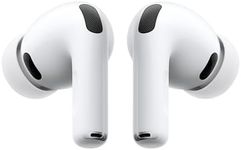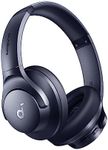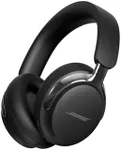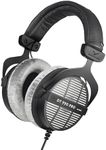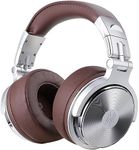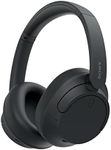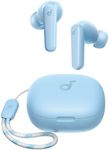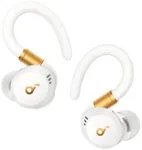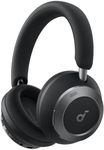Buying Guide for the Best Headphones
Choosing the right headphones can make a big difference in how you enjoy music, podcasts, movies, or even phone calls. The best headphones for you depend on where and how you plan to use them, your comfort preferences, and the features that matter most to your lifestyle. Before buying, think about whether you’ll use them mostly at home, on the go, during workouts, or for work calls. Also, consider if you prefer something lightweight and portable or if you’re looking for the best possible sound quality. Understanding the key specifications will help you narrow down your choices and find headphones that fit your needs perfectly.Type (Over-ear, On-ear, In-ear)The type of headphones refers to their design and how they fit on or in your ears. Over-ear headphones have large ear cups that surround your ears, offering comfort and good sound isolation, making them great for home use or long listening sessions. On-ear headphones rest on top of your ears and are usually lighter and more portable, but may let in more outside noise. In-ear headphones, also called earbuds, fit inside your ear canal and are very compact, making them ideal for travel or exercise. To pick the right type, think about where you’ll use them most and what feels comfortable for you.
Wired vs. WirelessThis spec tells you whether the headphones connect to your device with a cable or through wireless technology like Bluetooth. Wired headphones don’t need charging and can offer reliable sound quality, but the cable can get in the way. Wireless headphones give you more freedom to move around and are convenient for commuting or working out, but they need to be charged regularly. If you value convenience and mobility, wireless might be best, but if you want simplicity and never want to worry about battery life, wired could be the way to go.
Noise CancellationNoise cancellation is a feature that reduces unwanted background sounds, making it easier to focus on your music or calls. There are two main types: passive (which relies on the headphone’s design to block noise) and active (which uses electronics to cancel out noise). Active noise cancellation is especially useful in noisy environments like airplanes or busy offices. If you often listen in quiet places, you may not need this feature, but if you want to block out distractions, it can be a big benefit.
Sound QualitySound quality refers to how clear, balanced, and detailed the audio is. Some headphones emphasize bass, while others focus on a more balanced sound. If you love deep bass for dance or hip-hop music, look for headphones known for strong low-end performance. If you prefer clear vocals or classical music, look for balanced or high-fidelity sound. Trying out headphones or reading reviews can help you find a sound profile that matches your taste.
Comfort and FitComfort and fit are about how the headphones feel during use, especially over long periods. Over-ear and on-ear headphones should have soft padding and an adjustable headband, while in-ear models should come with different ear tip sizes. If you plan to wear headphones for hours, prioritize comfort and try them on if possible. For workouts or running, a secure fit is important so they don’t fall out.
Battery LifeBattery life is important for wireless headphones and tells you how long they can play before needing a recharge. Some last just a few hours, while others can go for a whole day or more. If you travel a lot or use headphones all day, look for longer battery life. For occasional use, shorter battery life may be fine.
Microphone and ControlsMany headphones come with built-in microphones and controls for calls, volume, and playback. This is especially useful if you plan to use them for phone calls or virtual meetings. Some have touch controls, while others use buttons. If you need to take calls or adjust music without reaching for your device, look for headphones with easy-to-use controls and a good quality microphone.
Durability and Water ResistanceDurability refers to how well the headphones can handle daily use, drops, or being stuffed in a bag. Water resistance is important if you’ll use them for exercise or outdoors, as it protects against sweat and rain. If you’re active or plan to use your headphones in different environments, look for models with sturdy construction and a water resistance rating.
